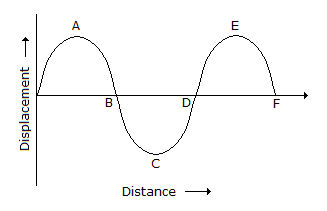Civil Engineering :: Elements of Remote Sensing
- Which one of the following statement is incorrect regarding the electromagnetic radiation?
-
In the given figure the phase of

- Which one of the following helps to identify the objects on the earth surface?
- The interaction of the electromagnetic radiation produced with a specific wave length to illuminate a target on the terrain for studying its scattered radiance, is called:
- The remote sensing techniques applied for the earth's surface features, is generally confined to the following wave lengths:
- Orbital radius of GPS satellites is approximately:
- Spatial variation in horizontal and vertical directions is caused due to:
- Which one of the following quantities forms the basis of radiometry?
- The arrangement of terrain features which provides attributes: the shape, size and texture of objects, is called:
- Which one of the following statements is correct?


 Whatsapp
Whatsapp
 Facebook
Facebook

